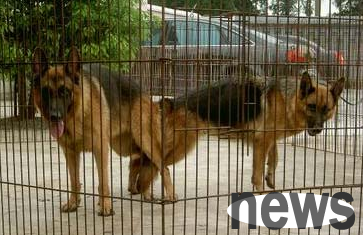Female dog infertility refers to a pathological state in which the female dog cannot become estrus and fertilize after maturity, or even after delivery, and still cannot become pregnant even after several matings. The causes of infertility are extre...
Female dog infertility refers to a pathological state in which the female dog cannot become estrus and fertilize after maturity, or even after delivery, and still cannot become pregnant even after several matings. The causes of infertility are extremely complex:

1. Causes of infertility of female dogs:
1. Improper breeding management. If the owner is too fond of himself, he will feed too much protein, fat and sugar for a long time and simply, and lack of exercise, the female dog is too obese, and fat degeneration in the ovary fat, follicle epithelium will develop steatosis, and the affected animal will not be in estrus, or it will not be conceived even though it is in estrus, or it may be prone to miscarriage in the early stages.
2. Malnutrition. Common dog foods include monotonous, inferior or lack of essential amino acids, minerals and vitamins, etc.
Specifically: a) and vitamin A deficiency can cause degeneration of epithelial cells, egg cells and follicle epithelial cells in the endometrium. Follicles are atresia or form cysts; vitamin E deficiency can cause pregnancy interruption, stillbirth or hidden miscarriage (fetal is absorbed); b) B vitamin deficiency can weaken the uterine contraction function, destroy the production and ovulation of egg cells, making the female animal not in estrus for a long time; c) vitamin D deficiency can cause metabolic disorders of minerals (especially calcium and phosphorus) in the body, which can indirectly cause infertility.
3. Sexual organ development abnormally. For example: reaching the age of mating, but having incomplete development of the reproductive organs or lack of reproductive ability (naive disease); sexual malformation, that is, having both male and female gonads; abnormal genital tracts, such as the slender cervix and uterine horns, the vagina or vagina is too narrow or atresia (cannot mate), etc.
4. Disease infertility. Such as cystic endometrial hyperplasia uterine purulent syndrome, uterine inflammation, vaginitis, ovarian cysts, ovarian tumors, uterine and vaginal tumors, brucellosis, toxoplasmosis, leptospirosis, etc.
5. Reproductive technical infertility. Mainly, it is poor artificial insemination technology and improper semen treatment.
6. Environmental changes, sudden changes in temperature and sunshine, etc. can also lead to infertility.

2. Treatment of female dog infertility:
Overall, the causes of female dog infertility are complex, which brings difficulties to diagnosis and treatment. It is not difficult to see that the key to treating infertility is to correctly diagnose and identify the cause. During diagnosis, you need to have both detailed consultation and systematic examination. The consultation should include inquiry about age, parity, medical history, diet (source, quality, ingredients, numbers, etc.), mating status and male dog status. Infertility treatment should be treated early rather than late. Treatment includes general and targeted treatment.
1. General treatment refers to strengthening feeding management, feeding regular full-price diets, giving necessary additives, strengthening exercise, etc.; targeted treatment refers to timely treatment for the primary disease, such as reproductive diseases.
2. In addition, hormone therapy is an important and effective means to treat female dog infertility. The hormones that can be selected include tri-hormones, prostaglandins, serum gonadotropins of pregnant horses, human chorionic gonadotropins, progesterone, estrogen, etc. When using it, you must choose and prescribe the right medicine according to the condition and hormone characteristics.